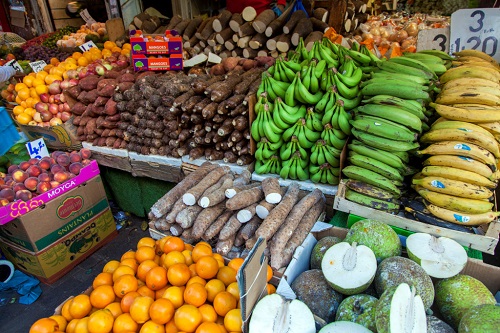Fertiliser shortage due to the Russia-Ukraine war will impact negatively on crop production and soil improvement in Ghana, particularly, under the government flagship programme, ‘Planting for Food and Jobs’, which rely heavily on inorganic fertilisers, a report by the Chamber of Agribusiness, Ghana has revealed.
According to the report, fertiliser production and supply will worsen this year than in the COVID-19 era and will be further aggravated by economic sanctions imposed by the European Union NATO, the United States, among other nations on Russia.
Russia is one of the largest producers of fertilizers in the world and therefore the sanctions on them by the United States, NATO and the European Union will worsen supply of fertilisers, making it scarce in Sub-Saharan Africa, which is always vulnerable to these shocks. This is because the continent is a net importer of the commodity.
“Chemicals, fertilisers, hydrogen, and a slew of other things rely on the world's gas supply, and this Russian-Ukraine crisis threatens to disrupt global fertilizer supply significantly. We predict that this year's supply will be even worse, making fertiliser scarce in Sub-Saharan Africa, which is always vulnerable to these shocks because we are a net importer of the commodity”.
“This will be compounded by the impact of COVID-19 on fertiliser supply, which saw the lowest usage in 2020 because of supply constraints and production bottlenecks from producing companies”, the report added.
In the southern sector of Ghana, March to May 2022 is the main season for crop cultivation.
The report, thus said, fertiliser application is inevitable and timely supply of the input will avoid the coming dangers of food shortages in the country.
Policy recommendations to avert potential impacts on food security
The report called for investments in local production units to protect farmers in the event that critical imports fail to materialise.
“New fertiliser recommendations and blends for the Guinea Savannah and Forest-Savannah Transition agro-ecological zones by the Soil Research Institute (SRI-CSIR) should have extensive policy support for proper implementation of Integrated Soil Fertility Management with important stakeholder participation. Additionally, the government must encourage organic fertiliser producers through a purposeful and vigorous local production policy and subsidies to enhance production and protect smallholder farmers.”
Again, it wants the implementation of deliberate policies that will encourage farmers to grow staple crops such as millet, maize and cassava that require less amounts of inorganic fertilisers to grow.
“COVID-19's impact on the agrifood sector has resulted in significant production losses, which necessitates urgent action by the government to get additional supplies of fertiliser before planting season especially in the northern parts of the country. Government should provide supports to importers to diversify fertiliser sourcing to shore up supply shortfall”.
Latest Stories
-
MultiChoice Ghana partners with Ghana Hotels Association to elevate guest entertainment
4 mins -
Bawumia’s music streaming app or Mahama’s pay-per-view TV channel?
9 mins -
Karpowership Ghana empowers 40 Takoradi Technical University students with scholarship
11 mins -
We expect significant reduction in prices of petroleum products in coming weeks – CEO AOMC
24 mins -
Betway Africa offers once-in-a-lifetime ‘Play-on-the-Pitch’ experience at Emirates Stadium
33 mins -
I coined the term ‘hype man’ in Ghana – Merqury Quaye
39 mins -
Vasseur questions ‘strange momentum’ of Formula One race director change
1 hour -
“I am disappointed in Kojo Manuel” – Merqury Quaye on “no tie” comment
1 hour -
Nana Kwame Bediako; The beacon of unity
1 hour -
Western Region: NDC youth wing embarks on phase 2 of ‘retail campaign’
1 hour -
Action Chapel International holds annual Impact Convention in November
1 hour -
Jana Foundation urges young women to take up leadership roles
2 hours -
All set for Joy FM Prayer Summit for Peace 2024
2 hours -
Managing Prediabetes with the Help of a Dietitian
2 hours -
Joy FM listeners criticise Achiase Commanding Officer’s election comment
2 hours

